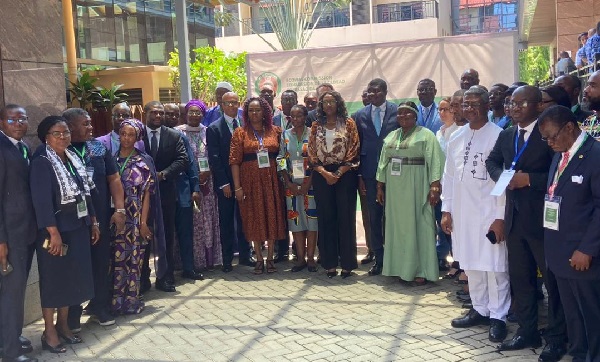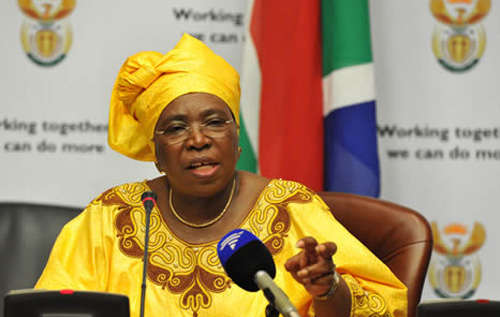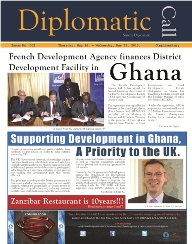
Sixty-five per cent of the population of the Economic Community of West African States (ECOWAS) are under the age of 24 years.
This makes the ECOWAS region one of the youngest regions in the world. Similarly, nearly 44 per cent of the region’s population is also under the age of 15.
Speaking at the opening of a two-day conference on Human Capital Development (HCD) in the ECOWAS Region in Accra on Wednesday, May 8, 2024, the Vice President of the ECOWAS Commission, Damtien Tchintchibidja, said in spite of the opportunities the youthful population of the region presents, yet the potential of the region’s young population is not being fully harnessed due to limited opportunities.
She said challenges such as high unemployment, widespread illiteracy, and restricted access to basic social services prevail, with women bearing the brunt of these issues disproportionately.
She noted that it was the region’s vision to harness the potential of its large and growing youth population by placing people at the centre of development efforts.
“Our previous efforts and investments have not adequately catered to the development of a population that is healthy, well-educated, and fully empowered to contribute to the social and economic growth of our countries, Damtien Tchintchibidja said, adding “the path to economic and social advancement in our region demands a more substantial and united effort towards fostering human potential.”
HCD Programme
The programme brought together top officials from the ECOWAS region as well as some development partners, including the World Bank, Bill and Melinda Gate Foundation to deliberate on how to accelerate human capital development (HCD) across the ECOWAS region.
The HCD term is used to refer to the process of enhancing and improving the skills, knowledge, abilities, and overall potential of individuals as productive members of society, country or organisation.
Among the objectives of the two-day event was to review the progress made so far in developing and implementing ECOWAS’s HCD strategy that was approved by the regional leaders in 2021.
The HCD strategy seeks to make ECOWAS, sub-Saharan Africa’s top HCD performer by 2030, focusing on health, education, skills, entrepreneurship, financial inclusion, and the digital economy.
Support for Member States
Madam Damtien Tchintchibidja commended Ghana’s commitment to the HCD strategy, saying “Ghana is exemplary and we want to celebrate and applaud the country’s role in this transformative journey.”
She said seven out of 15 ECOWAS member states have received ECOWAS funds to support the development of their national strategies, mentioning Nigeria and Burkina Faso as some of the countries that have completed the development of HCD national strategy.
She also indicated that Senegal, Benin, and Guinea-Bissau have developed their national strategy pending validation, adding that “Nigeria has moved to sub-national implementation of their National HCD Strategy and received significant support from ECOWAS to build out localised delivery.”
Madam Damtien Tchintchibidja touching on the conference said this HCD technical conference is a critical opportunity for us to check in on the progress made by each Member State, and to tailor our support to suit the needs of each country as we move into the active implementation phase.”
“ECOWAS’s 2050 vision clearly recognises that we must place our people at the centre of our development and transition from the ECOWAS of States to ECOWAS of the People,” she explained.
The World Bank Country Director, Robert O’Brien, highlighted the immense potential of West Africa’s rapidly growing youth population, which is projected to become larger than the workforces of China and India by 2040.
However, he said, harnessing this demographic dividend required significant investments in human capital development, as countries in the region face challenges like low educational quality, malnutrition, and gaps in healthcare access and outcomes.
A representative of the Bill and Melinda Gates Foundation, Charlotte Lejeune, stated the Foundation’s commitment to help the region to address challenges with HCD.







